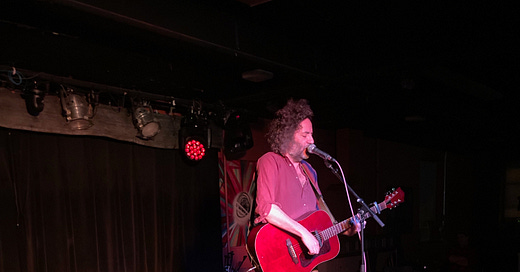If there are two things I love it’s funding and preserving fashion archives and red carpets. However, I also happen to dislike Nazi collaborators (is the collaborator of a collaborator also a Nazi?), and industry self-congratulation. I love the Met in that I love fashion in a similar sense that I love the Oscars because I love film. While discovering that these institutions are not about defining artistic quality is a bit like a kid learning the tooth fairy isn’t real, everyone has different limits to the facade. For me, those limits are Jimmy Kimmel jokes about Tar and asking guests to honor a nasty (and prolific!) man already almost synonymous with the fashion industry. I skipped the Oscars and the Met Gala.
I wish I could say this was an entirely political decision, but I had other plans. May 1st was the beginning of my last week of college classes, and while allegation-riddled superstars donned furry gear for a night dedicated to status, I sat on a barstool and watched a middle-aged guy in black Clarks Wallabees, wrinkled chinos, and a worn flannel take a bare stage. This was Dan Bejar of Destroyer, a Pitchfork-approved indie band that began in the late ’90s and gained popularity in the early ‘00s. His arrangements are usually replete with horns, drums, and the occasional synthesized but today it’s just him and an acoustic guitar. Bejar sings with a lilted British accent about heartbreak, winding tales with literary lilts and Biblical allusions. After every song he takes a stiff bow, crouches for a sip of water, and checks the crumpled paper at his feet. This is the sort of artist who mentions that he stumbled over a song because it was from seven albums ago, and wearily waits for his ending applause to cease so he can perform an obligatory encore.
I started listening to Destroyer at 18 in Freshman year, mainly cuts from Kaputt and Destroyer’s Rubies as the pandemic began to rage and life felt fragile. There was a perfect kind of melancholy to his music, something about his work could make a morning brighter, a sunset darker. His work takes me to crossroads, his work reminds me to look at all that is around me, his work makes me want to be more of a romantic. Destroyer was a reflection of a new realm of musical taste I discovered as a Freshman, and found a way to make my own. His music has carried me far.
So, was it really a surprise that standing there next to one of my first college friends, the one who introduced me to Bejar’s work, I wept as he reconfigured Kaputt’s “Downtown“ and reproduced a soft yet faithful iteration of “Chinatown”? Is it really odd that I stood transfixed at “Times Square“, an odd and sensation song I’d never heard? Would you believe that I wept AGAIN at “Painter in Your Pocket“ just because of the incredulity of those chords and its bareness? I’m not sure if it was the memories, if it was the songs, the moment, or if it was him. Whatever the case, watching a man with a guitar never felt so special, so personal, and so exceedingly raw.
Despite their function in producing and supporting the art they intend to honor, do the Oscars or the Met actually speak to the emotional resonance and power of that art? Why do we settle for glorified clip shows and industry repetition? Why engage with spectacle for spectacle’s sake? Why engage with that which is intrinsically superficial, why spend hours upon hours sorting through these calculated parades of surfaces? Isn’t there a beauty to art that appears before us, to an intentional and purposeful artistic experience? Why do we allow so much space for media events which blunt and commodity potential emotional reactions to art?
This may be rather romantic and far-fetched, but isn’t it a far more positive aspiration to witness art fully and deeply rather than transactionally and competitively? I will never feel so raw as I did that Monday on Instagram.
I don’t think it’s a stretch to consider that live music is a more compelling experience than watching an awards show. But this speaks to a more generalized need to break from a globalized and homogenized cultural landscape to appreciate the overwhelming power of lived art in all senses. That which feels immediate and irreplaceable, sudden and special. Bay Area band Small Crush performing punk covers of disco tracks in 2019, the rag-tag film festivals I did with my Dad, and learning the material of transluscent Rick Owens jacket. Recently, it was man without his band strumming a battered guitar for forty listeners until I wept, and wept again. I may never see him again.





